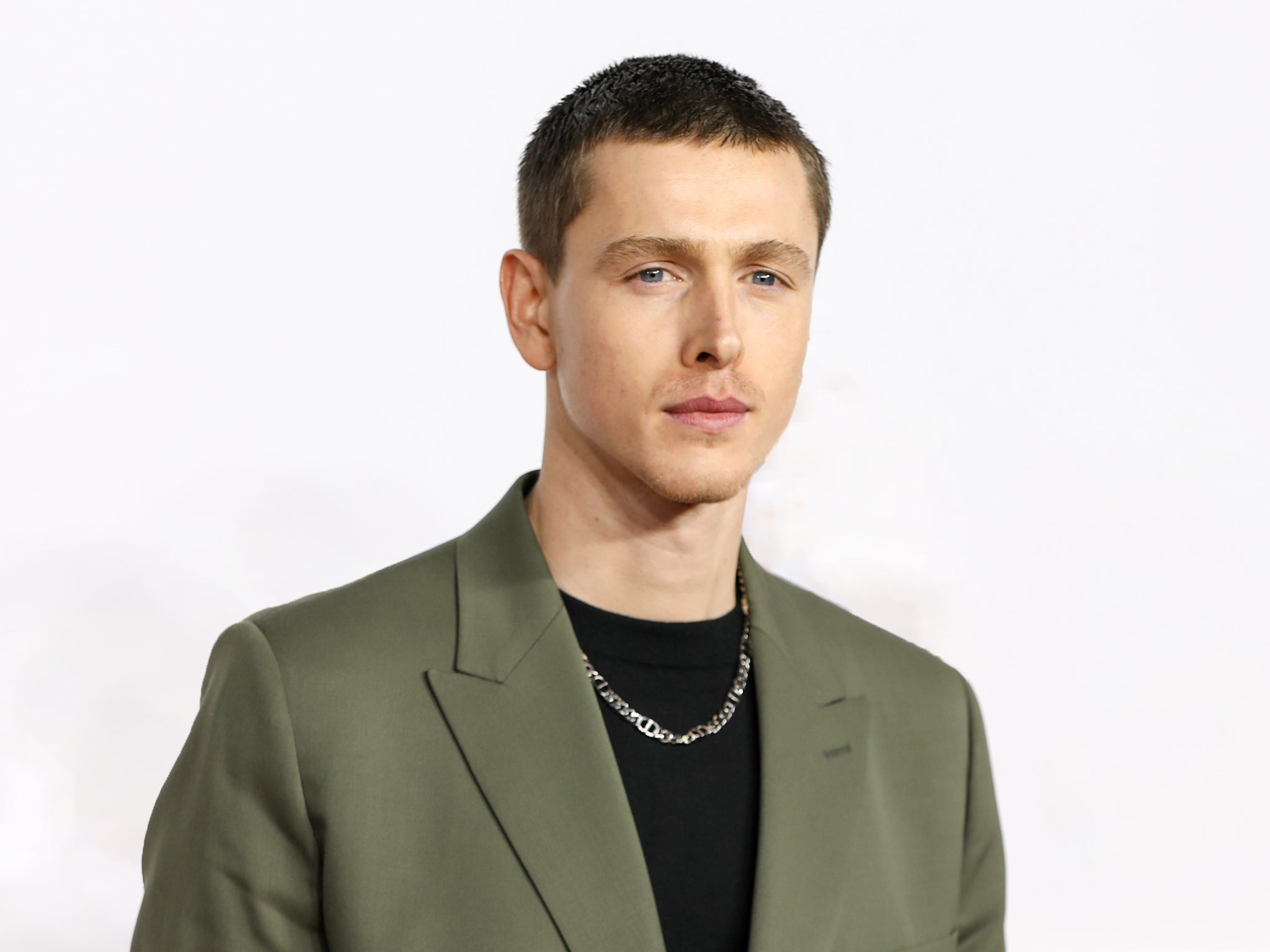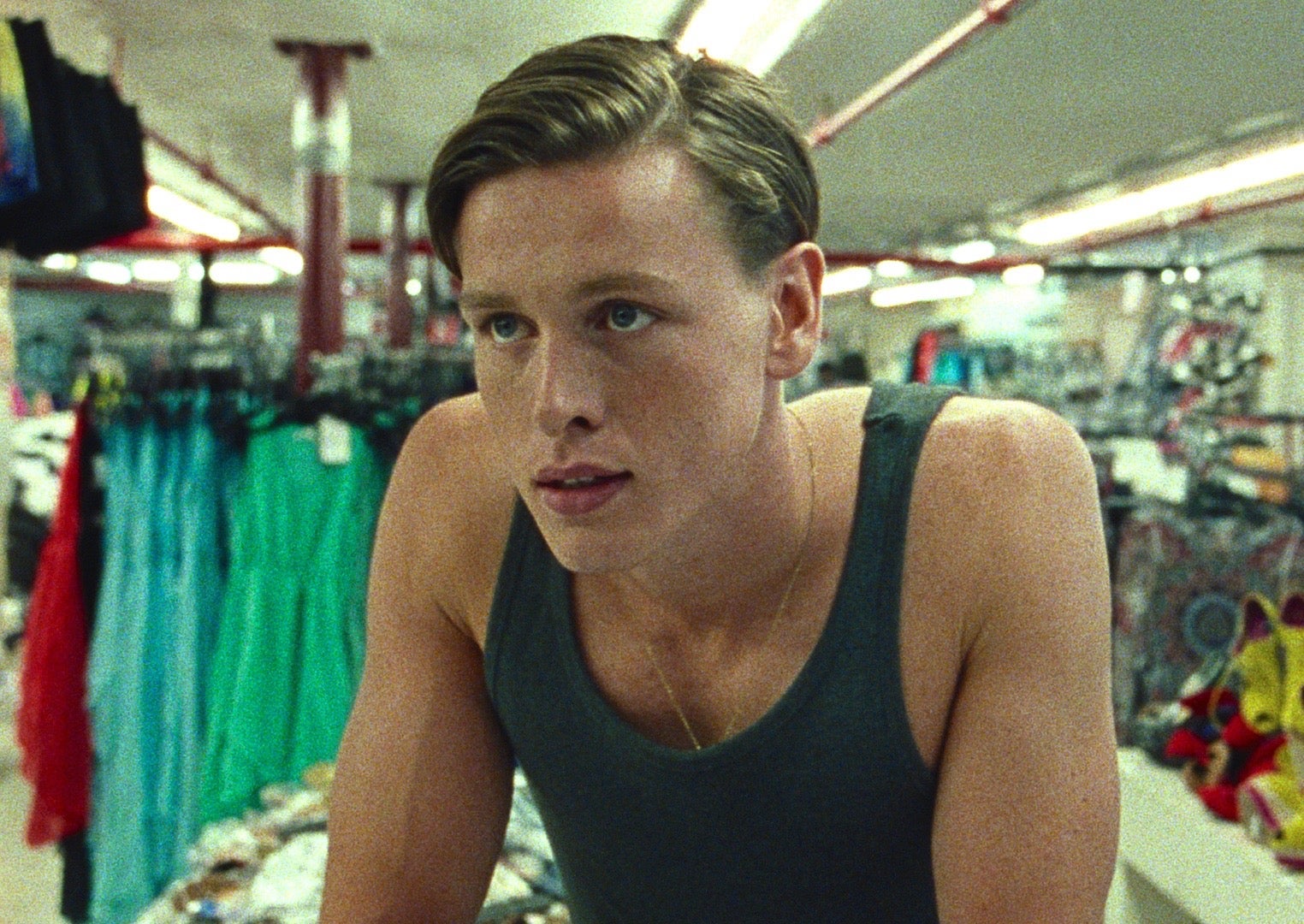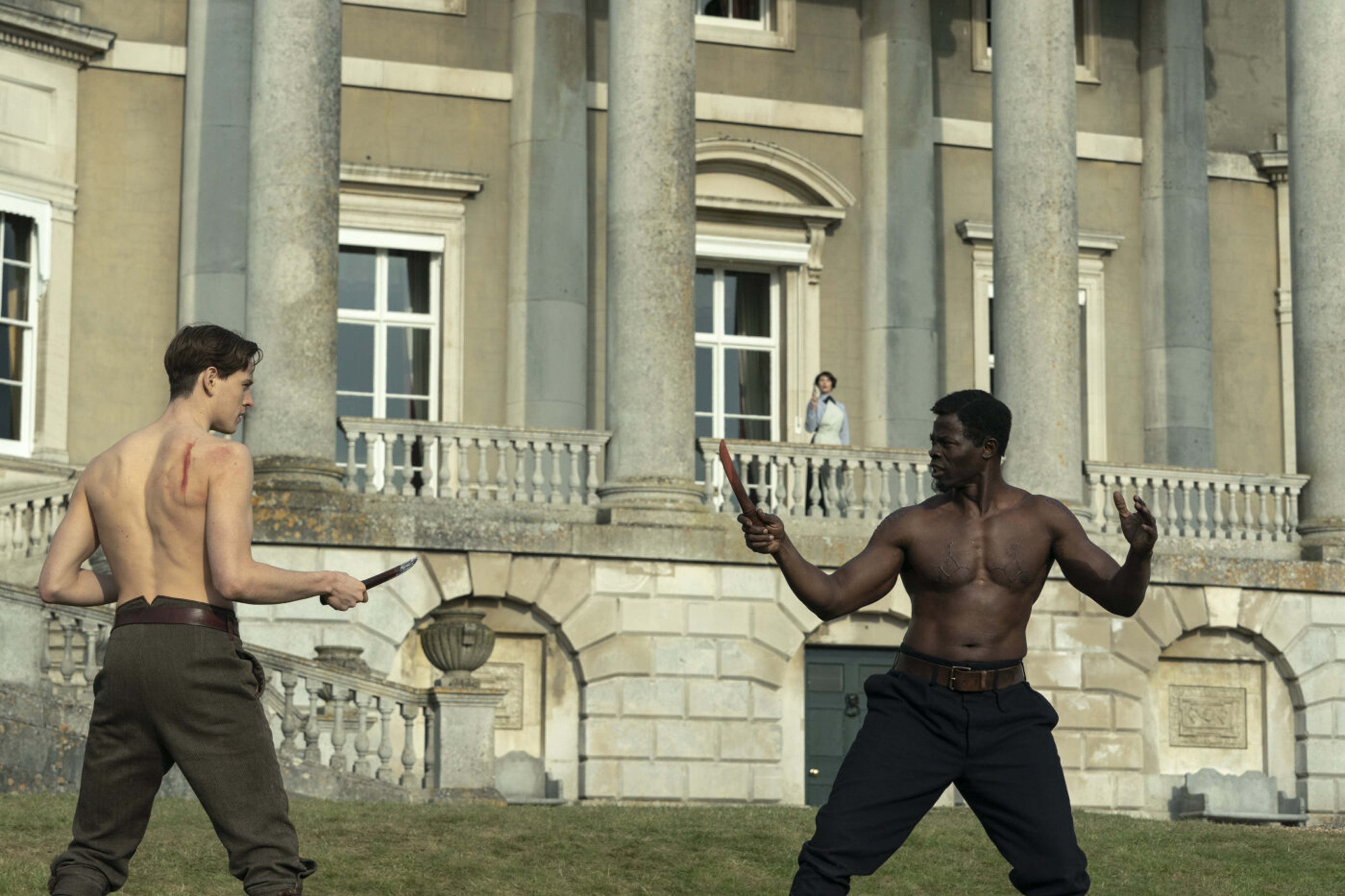Harris Dickinson: ‘I don’t want to be given leg ups. I want to graft for it’
The actor is a rare talent who is both the new darling of indie cinema while also leading an action blockbuster, and makes films as well as starring in them. As ‘The King’s Man’ opens in cinemas, he talks to Jack King about skipping drama school, being a self-starter and avoiding working class typecasting

Your support helps us to tell the story
From reproductive rights to climate change to Big Tech, The Independent is on the ground when the story is developing. Whether it's investigating the financials of Elon Musk's pro-Trump PAC or producing our latest documentary, 'The A Word', which shines a light on the American women fighting for reproductive rights, we know how important it is to parse out the facts from the messaging.
At such a critical moment in US history, we need reporters on the ground. Your donation allows us to keep sending journalists to speak to both sides of the story.
The Independent is trusted by Americans across the entire political spectrum. And unlike many other quality news outlets, we choose not to lock Americans out of our reporting and analysis with paywalls. We believe quality journalism should be available to everyone, paid for by those who can afford it.
Your support makes all the difference.The Kingsman franchise is as known for its sartorial posturing as it is for making a star of Taron Egerton. Take the films’ ubiquitous glasses, articles of wit and sophistication, which invariably double up as nifty, 007-styled gadgets. That chicness seems to have rubbed off on another one of its cast members, 25-year-old Harris Dickinson. The actor sits in the Soho Hotel in central London, handsome as ever, with a pair of dapper spectacles on the arch of his nose. They’re very suave, I say. Very Kingsman. But the reality is a little different. “They’re actually just the blue light ones,” he offers. “My eyes get a bit sensitive to the screen and the lights, man.”
Dickinson comfortably inhabits the demanded pomp in his new role in The King’s Man, the latest instalment in Matthew Vaughn’s swashbuckling spy film series, occupying the privileged brogues of Ralph Fiennes’s aristocratic son, Conrad Oxford. As is de rigueur in Vaughn’s gloriously contrived capers, it takes Oxford to all ends of the map, this time during the First World War: from Sarajevo – where he witnesses the assassination of Archduke Franz Ferdinand, because why not – to the blood-and-bones trenches of the Western Front. He wears gentlemanly refinement well and it feels as if the actor, four years after his breakout role in 2017 indie film debut Beach Rats, is genuinely about to have a belated big moment.
The Kings’s Man is Dickinson’s first meaty blockbuster part and it couldn’t be further from his own background. He is a rare commodity in the film industry: an actor without famous or, indeed, wealthy parents. Like Alfred Hitchcock, Derek Jacobi, and David Beckham before him, he was born and bred in east London’s Leytonstone, to a hairdresser mum and social worker dad. His backup to acting was going to be the marines. He didn’t have much of a “cinephile upbringing; I wasn’t put onto these rich sort of things,” Dickinson says. And yet, he continues, “I was lucky that my mum and dad loved Abigail’s Party and Cathy Come Home, and my dad was big on Ken Loach.”
Beyond starring in The King’s Man, Dickinson has erred on the side of indie flicks himself: since his part in Eliza Hittman’s Beach Rats, playing a New York kid who secretly sleeps with older men, he’s worked with the likes of prolific Québécois filmmaker Xavier Dolan, acclaimed British indie auteur Joanna Hogg, and behind-the-camera legend Danny Boyle. Next year, he’ll lead the latest effort from Ruben Östlund, Triangle of Sadness, the hotly anticipated follow up to the Swedish director’s Oscar-nominated film The Square.
The many plaudits Dickinson earned for Beach Rats were entirely deserved: he imbued his obnoxious, jockish protagonist, Frankie, with genuine likeability. But perhaps the best showcase of his star qualities comes in the form of a much smaller cameo. In Dolan’s film, Matthias & Maxime, his character’s introduction is the inadvertent centrepiece: Dickinson ascends an escalator in mid-shot, obnoxiously waving his fingers to Pet Shop Boys’ “Always On My Mind”. The scene lasts all of a minute but serves as a testament to Dickinson’s boyish charisma. He’s unequivocally the draw in The King’s Man, too: one sequence, a 1917-esque long take in the trenches, showcases his huge emotional range, which zig-zags from Spartan heroism to heart-wrenching despondency.
Had Dickinson been formed of a more brittle constitution, however, none of this might have happened. When he was 17, studying film and theatre at college, he was frequently taunted by a sneering film studies tutor. “He highlighted to me, in a negative way, my social circumstances and my cultural exposure,” he recalls. “He was a bit of a d**k. It made me want to defiantly know more about the world, but film specifically. Whether it was a way of pushing me or something, I don’t know.”
Either way, it worked. After that, it was all or nothing. Wrangling himself an agent after performing in a show at The National, Dickinson worked a relentless conveyor belt of part-time, menial jobs to eventually fund a trip to LA. “I worked in a bar. I was a litter picker. I had a regular job at Potters Fields in London Bridge, where I looked after the bins. I worked in Hollister in the basement. I worked in a cafe, and then I worked in a hotel,” he recalls. In retrospect, he suggests, Los Angeles might not have been the right place for an 18-year-old with little prior experience, but the UK was hardly fruitful. “I hadn’t been to drama school, I was from a somewhat working class background. America seemed to be a little more forward – it gave me the opportunity to play people outside of my circumstances,” he says. “In the UK, it was like, ‘Oh, no, there’s no way you’re going to be playing this kind of role, or that kind of role.’”
In LA, he auditioned for four or five things a day: he’d fly out there for pilot season, turn up zilch, and come back to the UK to work his myriad gigs with the mind to fund it all over again the following year. This was sparsely punctuated with work appearing in ads, while he made video auditions from his family home in Walthamstow. It turned out to be one of these far less glamorous auditions that got his foot in the door. “The irony is,” Dickinson reflects, “I came home and I got the self-tapes through for Beach Rats, and I did that in my childhood bedroom. And that turned out to be the thing that gave me a break.”

Now he’s turned to making films himself. At this year’s London Film Festival, Dickinson premiered his first proper short, 2003 – the first time he’s stepped behind the camera in a professional capacity. Clocking in at 11-and-a-half minutes, 2003 covers the quietly tumultuous relationship between a working class lad and his alcoholic father: with the former enlisting with the British army and about to head off on a tour, they’re flung into shaky reconciliation. Clearly there are echoes of Dickinson’s personal experiences, as he himself almost joined the marines. It’s also reminiscent in style of Beach Rats: his performers boast the rich verisimilitude of Hittman’s leads, the script impressively unaffected, his camera imbued with her hushed observance (Robbie Ryan, who recently shot C’mon C’mon, the latest film by indie favourite Mike Mills, was his cinematographer).

Watch Apple TV+ free for 7 days
New subscribers only. £8.99/mo. after free trial. Plan auto-renews until cancelled

Watch Apple TV+ free for 7 days
New subscribers only. £8.99/mo. after free trial. Plan auto-renews until cancelled
Not every debut filmmaker can say they’ve worked with an Oscar-nominee like Ryan, whom Dickinson met while starring in Danny Boyle’s series Trust and subsequently convinced him to come on board (he’d only do it if it was shot on 16mm). “I tried to leave Robbie to do his thing,” Dickinson says. “I had to beg him to do some of the zooms and the long lens shots. I was like, ‘Can we just try this more stable, slow zoom, more absurd stuff,’ because, you know, as much as I love social realism and the grim British style, I want to explore new territories in the way Lynne Ramsay does, the way Andrea Arnold does.” (He also cites John Cassavetes, Mike Leigh, Michael Haneke, and London-based filmmakers like Rocks’ Sarah Gavron and his director on County Lines, Henry Blake, as inspirations.)
Dickinson says 2003 was first conceived of four years ago, and he’s tried to get it made a few times in the interim. “I got the script to a place I was happy with,” he says. “And [I thought] maybe, at some point, I’ll just fund this myself, go a little bit broke, and do it.”

It’s tremendously hard to get any film made, and one might think Dickinson could leverage his name to get it over the line, but it’s something he’s markedly averse to. “I’ve got a rule that I don’t ever try to hustle my filmmaking when I’m in the room as an actor, because I want to do it off my own back,” he says. “I don’t want to be given leg ups. I want to graft for it. I want it to be organic.” He has a feature film in development now, he says, albeit not based on 2003. “I don’t think I should [talk about it],” he says, “because it’s still in the stage where it’s sort of shifting and moving. There’s no point, you know.”
In the next six months we can expect something of an impressive indie double-header: Dickinson is one of Honor Swinton-Byrne’s three muses in the acclaimed sequel to Joanna Hogg’s The Souvenir, subtitled Part Two, alongside Stranger Things’ Charlie Heaton and The Favourite’s Joe Alwyn. And, at some point, we’ll finally get eyes on his starring turn in Östlund’s Triangle of Sadness, which he finished shooting last year. “I didn’t really know much about [Östlund] as a filmmaker” before working with him, he says. “So that’s the other great thing is that when you get to work with these people, you’ve no choice but to explore that whole body of work.”
Suffice to say, he was a fan. The Square, Östlund’s last film, won the coveted Palme d’Or prize in 2016, so this one promises to be a big deal too. For anyone’s money, working opposite Ralph Fiennes in a big budget tentpole could be a glorious career apex. But with such a determined work rate, this nascent era, one suspects, will come to be known as Dickinson’s patient prologue.
‘The King’s Man’ is out in cinemas on 26 December



Join our commenting forum
Join thought-provoking conversations, follow other Independent readers and see their replies
Comments